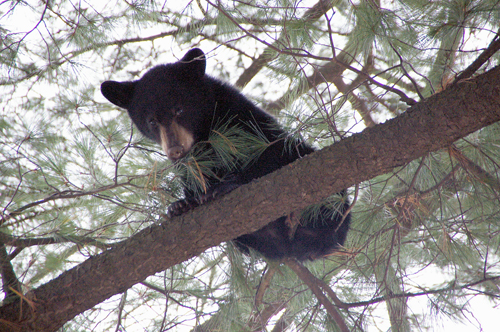No soul searching needed; Lake Placid is a sports town

A crowd watches a luge World Cup race at Mount Van Hoevenberg in December 2015. (News photo — Andy Flynn)
When he opened the virtual meeting Tuesday, Nov. 9, to give the community an update on preparations for the Lake Placid 2023 Winter World University Games, Regional Office of Sustainable Tourism CEO Jim McKenna had us think of places like Detroit, Las Vegas and Rochester, New York. His point was — What do you think of when you hear the names of these cities? What are they known for?
Then he asked the same about this village. How does the world view Lake Placid?
The short answer is “a sports town.” Even after the glow of the 1932 and 1980 Olympic Winter Games began fading, community leaders worked hard to never forget that we’re not only in the hospitality business; we’re in the international sports business. And we’re a world leader in that arena.
Speaking of arenas, the 1932 Olympic Arena was the symbol of Lake Placid’s launch into the international sporting world, even in its earliest days before the III Olympic Winter Games opening ceremony. Yes, the bobsled run at Mount Van Hoevenberg and ski jump at Intervales played an important role in keeping Lake Placid on the sports map, but the arena was the symbol. It was also a place the community came together to celebrate life, play games, host sporting events, train athletes and host conventions. The 1980 rink has done the same, especially after the Miracle on Ice.
Over and over, Lake Placid has done this — planned events, built infrastructure for those events, hosted the events and made sure those infrastructure improvements were used wisely in the future for the benefit of the local economy and residents. We saw it for the 1932 and 1980 Olympics, the 1972 Winter World University Games, the 2000 Winter Goodwill Games and now we’re seeing it for the Lake Placid 2023 Winter World University Games.
Lake Placid is a sports town. People visit here — even move here — because of that fact. They’re attracted by sport and stay for something deeper in their souls: the security of a small town, the beauty of the landscape, the opportunities for outdoor recreation. We’re not searching for a new identity like Saranac Lake had to do when the Trudeau Sanatorium closed in the 1950s or when most of the wood products companies closed in Tupper Lake. Paper mills and mines closed in other towns in the 1960s. ’70s and ’80s, and their identities were lost; some haven’t fully recovered.
Since the early 1900s, even before 1932, Lake Placid has always had sports, and it’s lucky it didn’t have to go through decades of soul searching.
“Thank God” for the state of New York and its investment in our Olympic venues in Lake Placid and Wilmington, McKenna said during his Nov. 9 introduction. The state is spending millions of dollars in upgrades to our sports facilities so we can keep and maintain that sports identity — and so that, many years after we’ve hosted an Olympics, Lake Placid is still active in the Olympic movement and is seen as a world leader.
Kudos to the many people who have worked hard to make this happen. You’ve given a priceless and long-lasting gift to our community.



